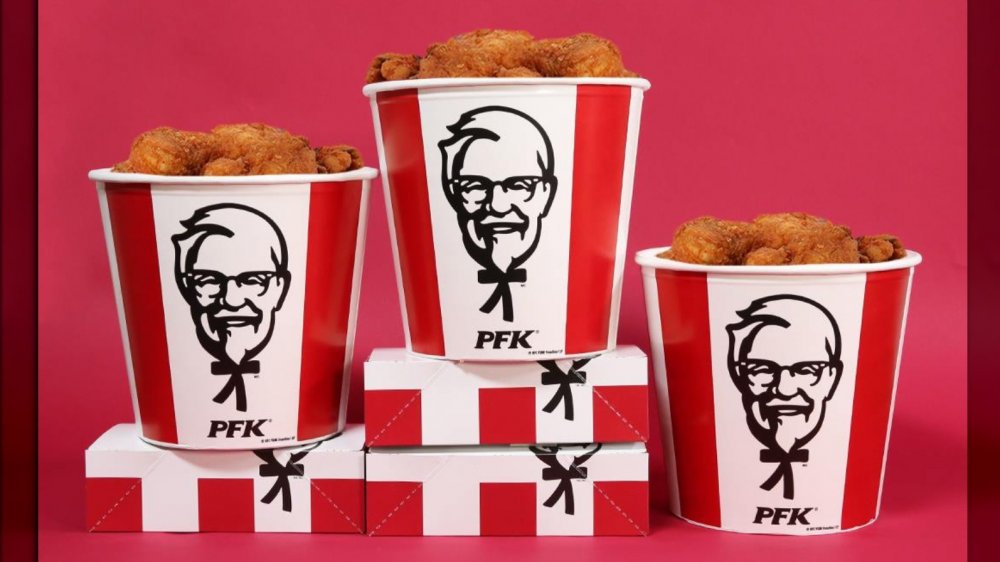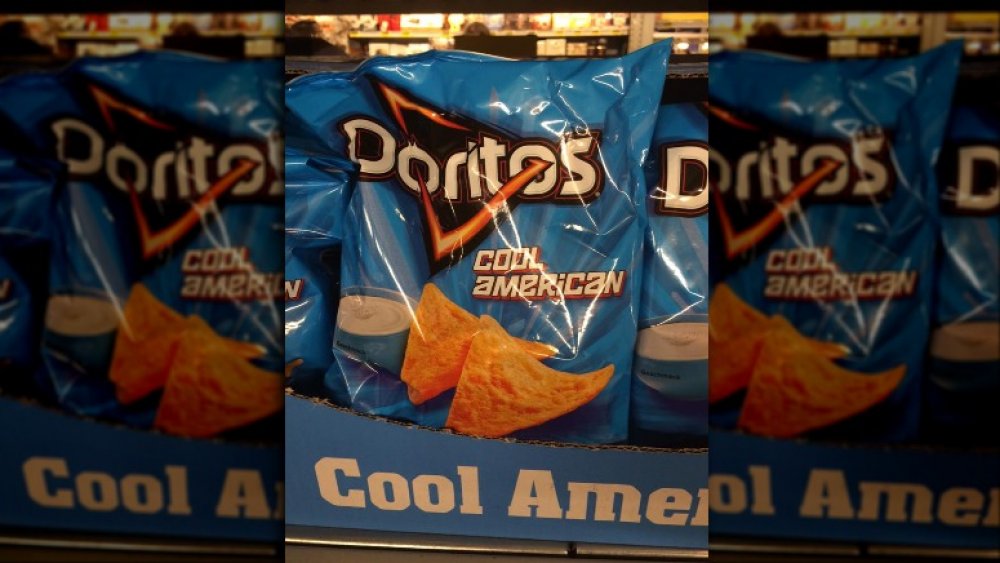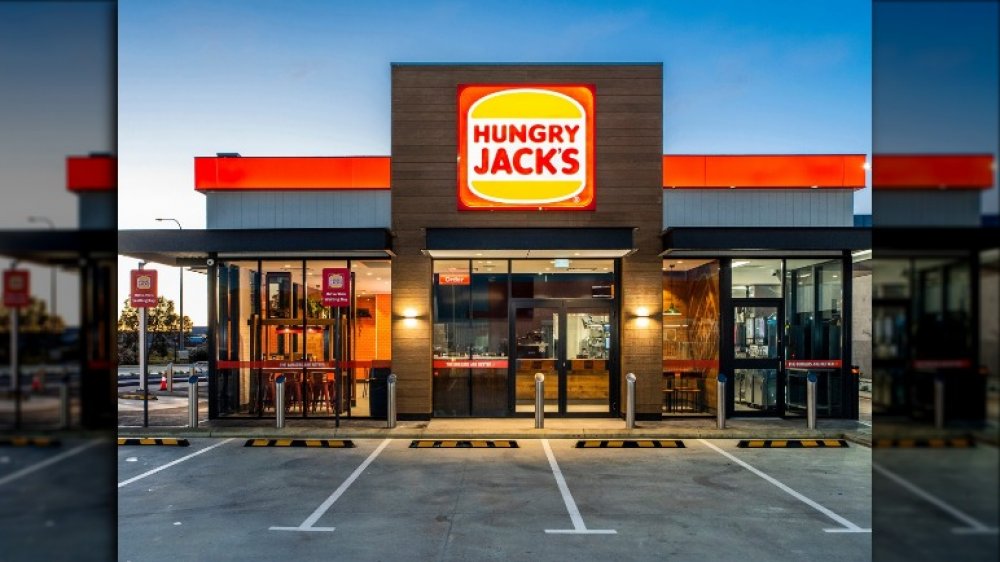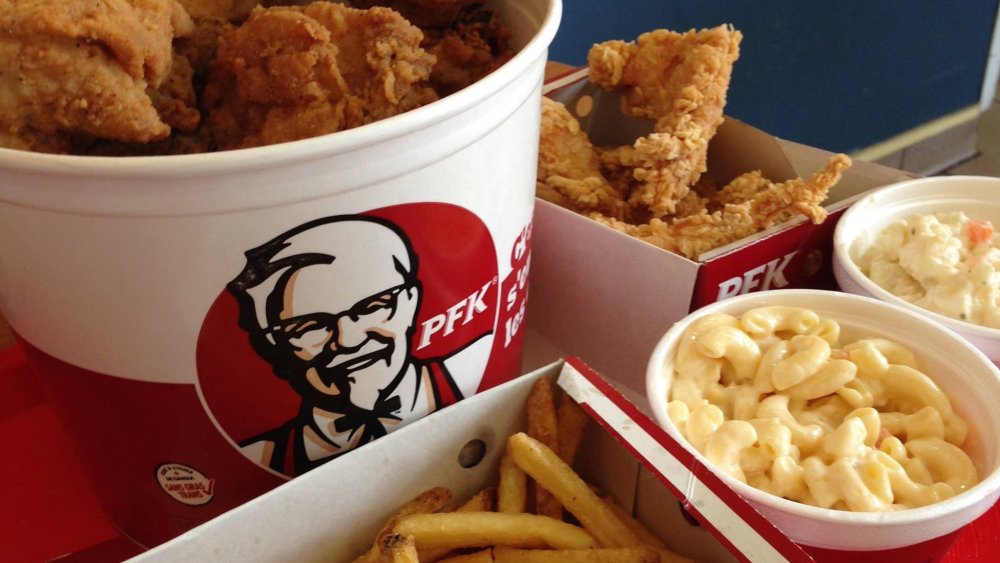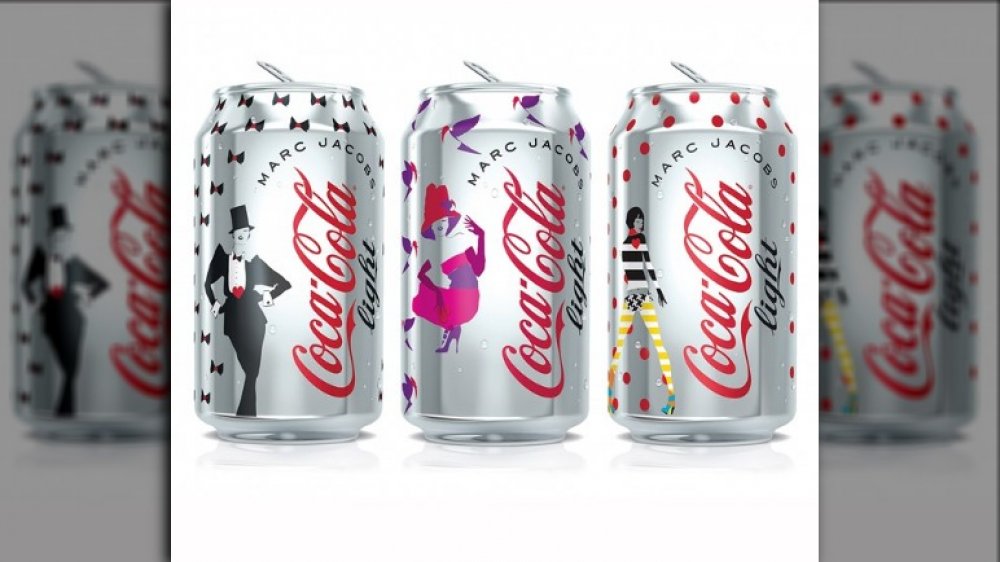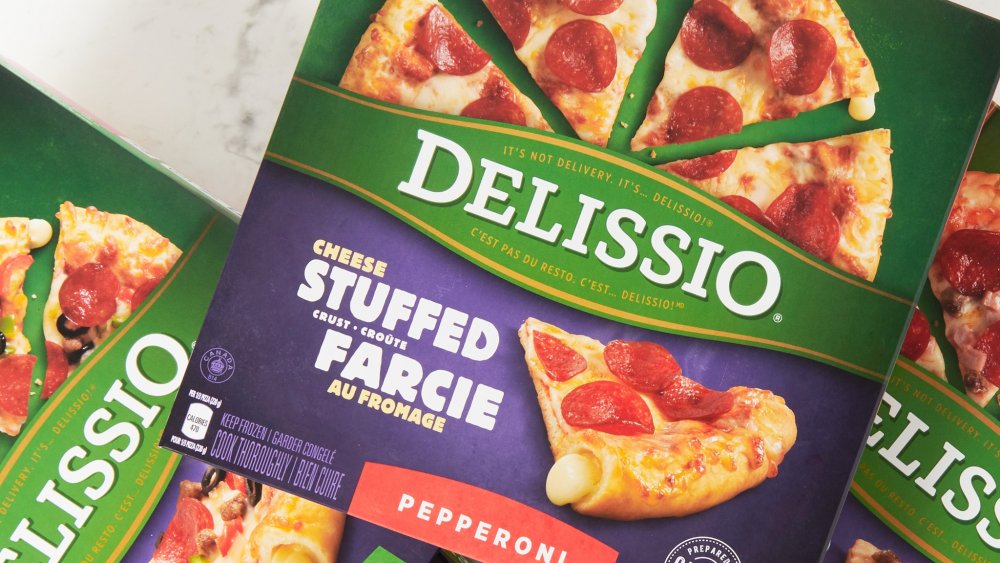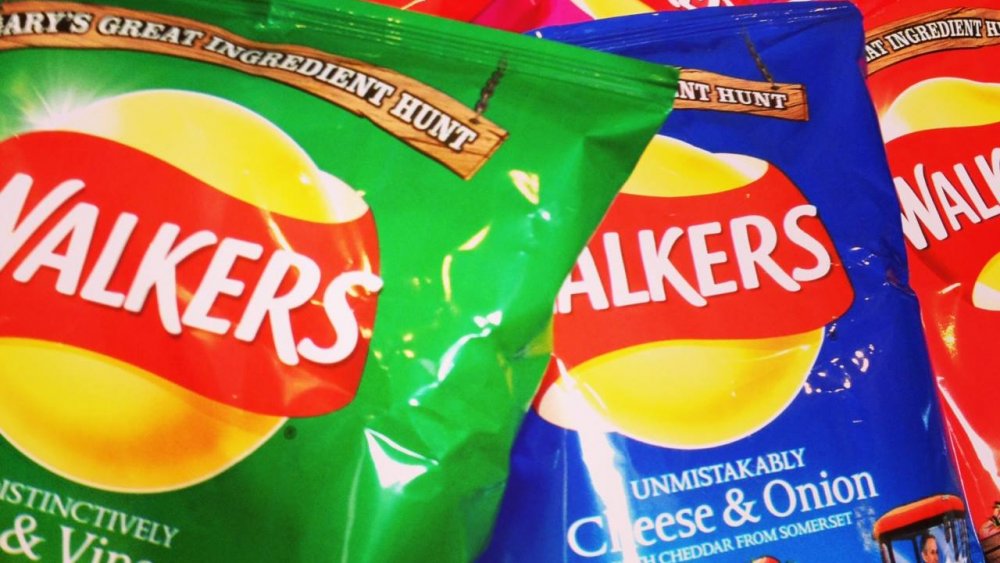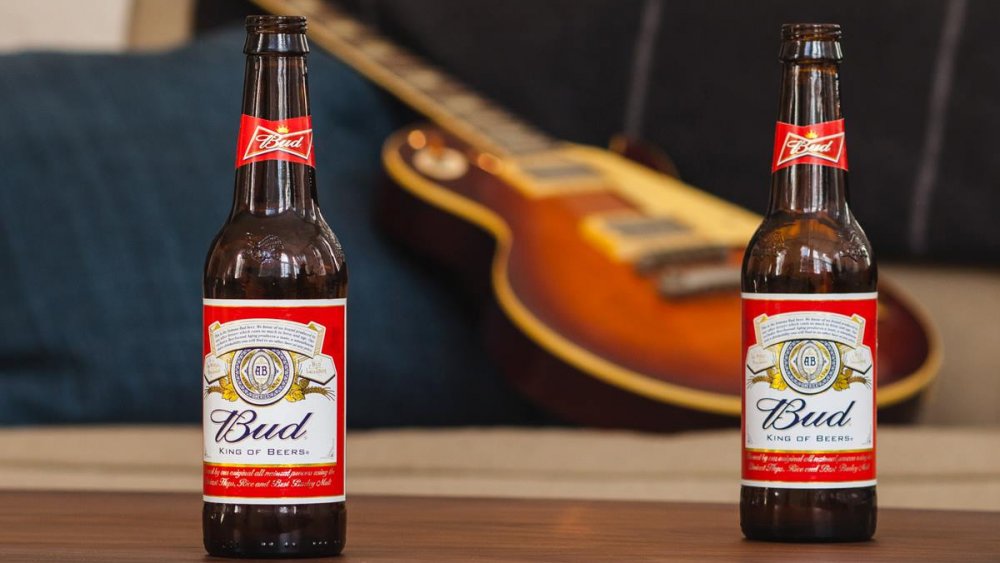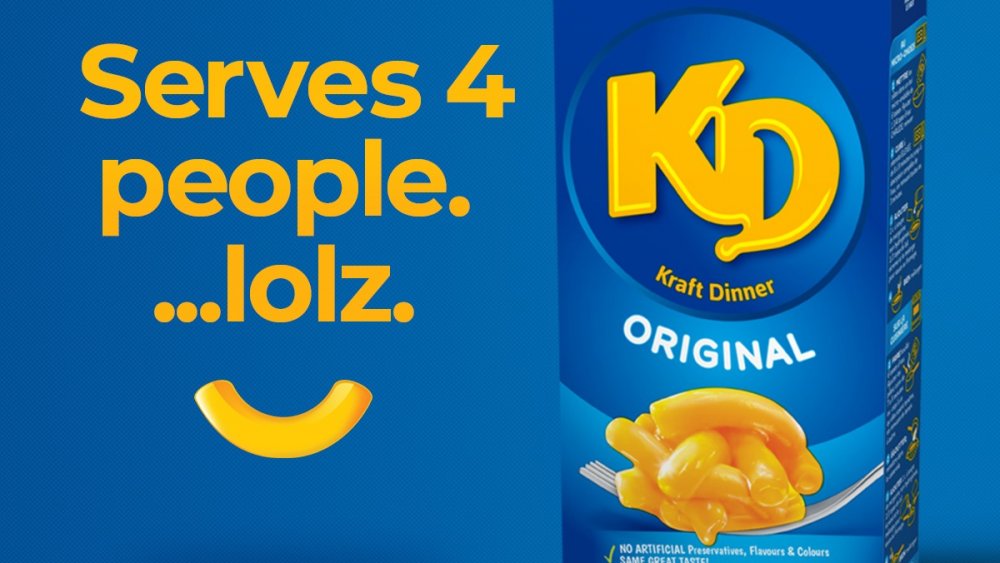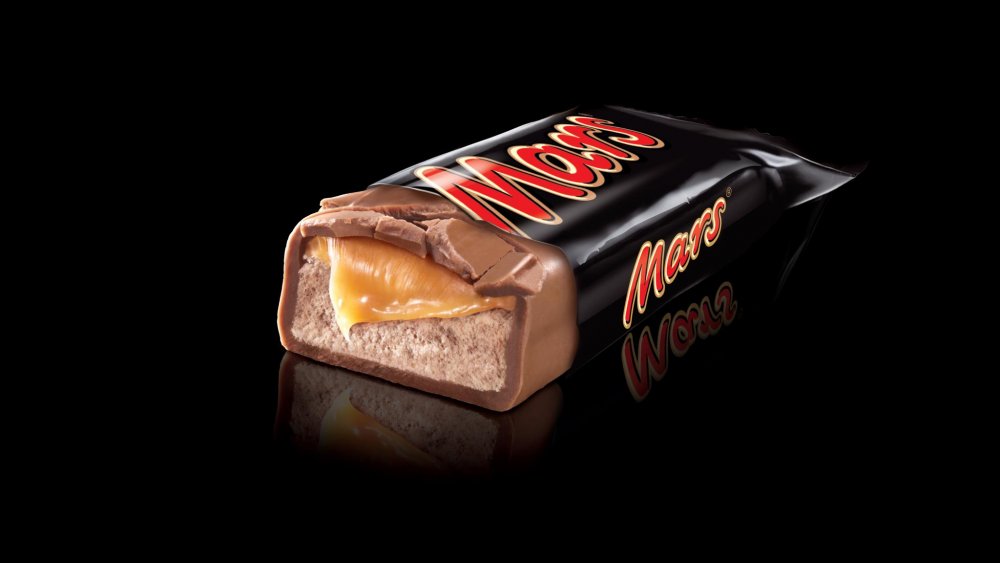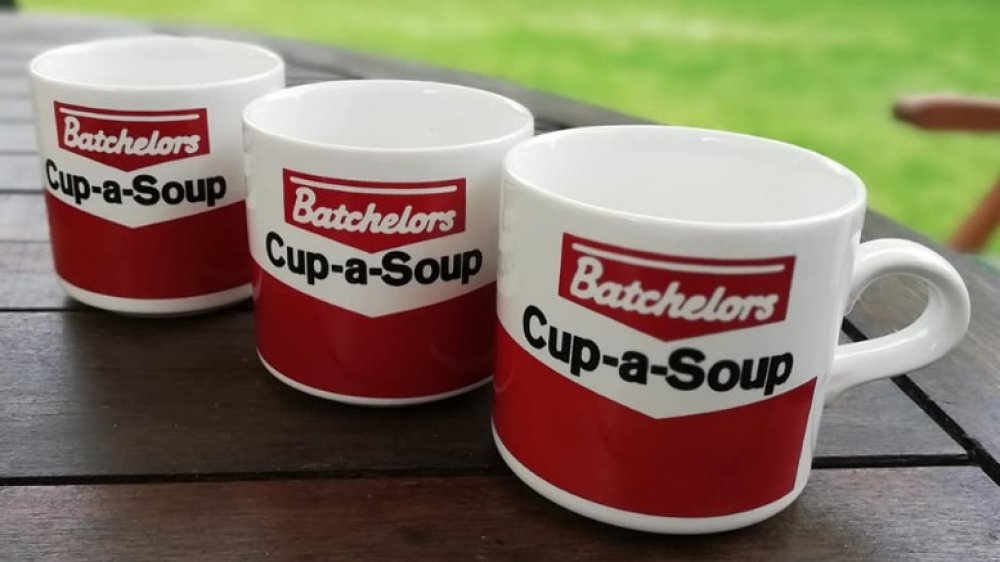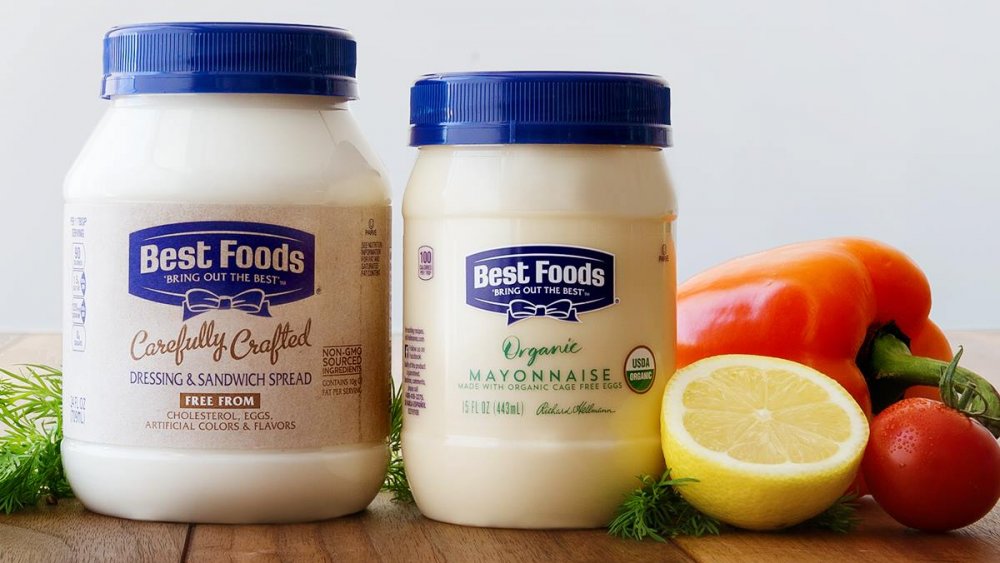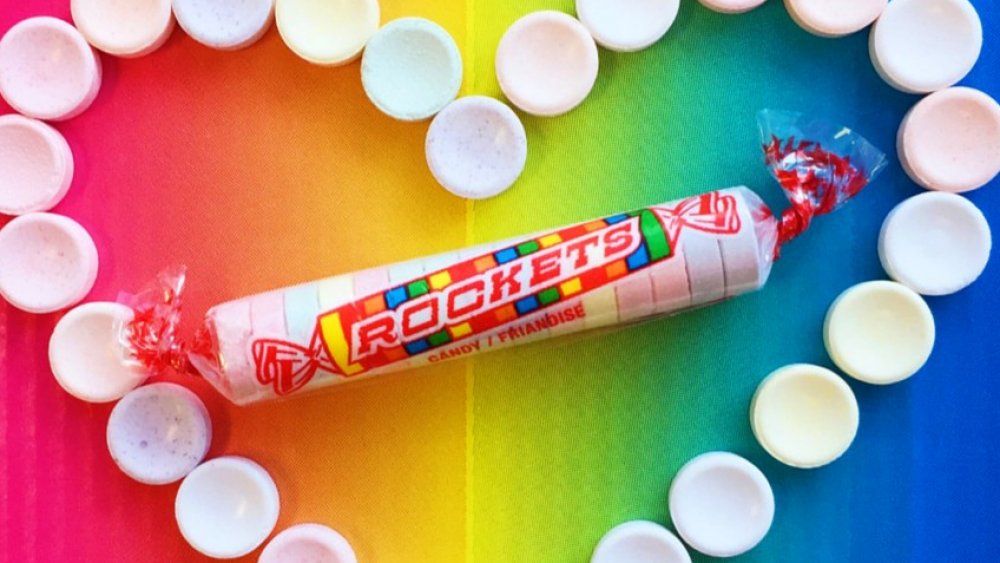Popular Food Brands That Have Different Names In Other Countries
What's in a name? Well, when it comes to food, a lot. The name of a food product could signify where it originated, who created it, or just help explain what the item is. Therefore, the name of a product means a great deal to a company. And if it's successful enough, the name recognition goes a long way in the crowded market. But if you're traveling internationally, you may have some difficulty finding these name brands, even if the product is in fact sold there.
Americans who haven't stamped their way through their passports might not be aware, but many of the products they know and love go by different names in other countries. In fact, you don't even need to travel very far to see it firsthand. Our neighbors to the north call several popular American products by different names, including a particular fast food restaurant and a favorite childhood cheesy snack.
Whether it's because of trademark issues, cultural differences, or simply a marketing strategy, many food brands have opted to go by a different name abroad than the one Americans are familiar with. These are popular food brands that have different names in other countries.
Cool Ranch Doritos are called Cool American Doritos in Europe
Since their creation in 1966, Doritos have grown to become one of the most iconic snacks around. Part of that is due to the popularity of some of their flavors. Surging to the top of their flavor power rankings is the classic Cool Ranch.
Although Americans are known to pour ranch dressing on just about anything, it turns out the condiment is not quite as popular elsewhere in the world, particularly in Europe. Since most people on the continent aren't even sure what the dressing is, using the term "Cool Ranch" isn't going to mean much.
Therefore, the makers of Doritos swap out "Cool Ranch" for "Cool American" in several European countries including the Netherlands, Denmark, and Iceland. In the U.K., they're just called "Cool Doritos." These descriptions probably don't give any European a better idea of how the chips taste but they likely won't mind too much once they start eating.
Burger King is called Hungry Jack's in Australia
When Burger King was expanding its empire into Australia, the company faced a problem: there was already a restaurant with the same name. An existing burger joint in Adelaide had a trademark on the name Burger King and refused to give in.
The American Burger King was forced to change its name when operating in Australia. Burger King offered its Australian franchisee several alternative name options, one of which was Hungry Jack's. Since the franchisee's name was Jack, it was an easy choice.
The first Hungry Jack's opened in Perth in 1971. In the 1990s, Burger King was allowed — and did — began opening restaurants under the Burger King name after the original trademark expired. After a few years of confusion and quarrelling, the company decided that it was best to unite under one common brand throughout the country, and the name that Aussie's loved won out. To this day, all Australian Burger Kings are called Hungry Jack's.
KFC is called PFK in Quebec, Canada
Colonel Sanders surely had no idea what was in store for his 11 herbs and spices fried chicken when he sold his first franchise in 1952. Today, KFC is one of the largest restaurant chains in the world, with some 24,000 stores in 145 countries, including Canada.
Most KFC stores in Canada go by that name. In the province of Quebec, it's a different story. Quebec's official language is French. Section 63 of Quebec's French Language Charter states that, "The name of an enterprise must be in French."
As we all know, KFC is an acronym for Kentucky Fried Chicken, which translates to Poulet Frit Kentucky in French. When the chain opted to shorten its name to KFC in 1991, Poulet Frit Kentucky became PFK.
Interestingly enough, Colonel Sanders lived in Canada for many years of his life. He moved to Ontario in 1965 to oversee the restaurant chain's Canadian operations and lived there until his death in 1980.
Diet Coke is called Coca-Cola Light in many countries
"Diet" may be one of the most used food descriptors in the country. Yet there are few examples of the word being ingrained within the name of the product the way Diet Coke is. Brand recognition has certainly helped Diet Coke — it's easily one of the top sodas in the United States. But in many countries around the world, Diet Coke doesn't exist.
Unfortunately for the Coca-Cola company, in many of those countries the term "diet" is not used to describe a lower-calorie food. It's therefore not used on food labels. That could have been a big problem to the company considering how important Diet Coke is to the Coca-Cola brand and how well it sells.
So Coke opted to change the name Diet Coke to Coca-Cola Light. This is the name you'll find in stores outside the United States, Canada, United Kingdom, and Australia.
DiGiorno is called Delissio in Canada
Ever since it was released into the world in 1995, DiGiorno pizzas have been a mainstay in frozen food aisles across the country. Known for its rising crust, DiGorno is the best-selling frozen pizza in the United States by a wide margin. And while it's sold is Canada as well, it goes by a different name: Delissio.
At the time, the product was owned by Kraft, which had previously used the name on other pizza products in Canada as far back as the 1980s. In 1999, the company officially gave the name Delissio to the Canadian version of the product we know as DiGiorno.
In 2010, Kraft sold its frozen pizza business, including DiGiorno and Delissio, to Nestlé, which has chosen to keep both names.
And don't worry, both products are sold with the same famous advertising slogan, just with the names swapped out. So if you're ever in Canada, you'll hear, "It's not delivery, it's Delissio."
Lay's is Walkers in the United Kingdom and Ireland
Lay's go by different names in several different countries: Sabritas in Mexico, Smith's in Australia, Poca in Vietnam. But most notably, they go by Walkers in the United Kingdom and Ireland
In 1932, Herman W. Lay started a snack food delivery company. A few years later, he purchased the potato chip manufacturer Barrett Food Company and renamed it the H.W. Lay Lingo & Company, later changed Lay's Lay Lingo Company.
In 1961, Lay's merged with the Frito Company to form Frito-Lay. Frito-Lay merged with the Pepsi-Cola Company in 1965 to became PepsiCo, which owns Lay's chips to this day.
Walkers was founded in 1948 and quickly became the United Kingdom's leading potato "crisps" company. PepsiCo acquired it in 1989. Although it has changed the Walkers logo to make it look similar to Lay's, PepsiCo opted to keep the name since it was already widely known United Kingdom.
The only difference between these chips is the flavor choices. On the other side of the pond, you'll find Walkers in flavors like Prawn Cocktail, Beef and Onion, and Marmite.
Budweiser is called Bud in most of Europe
While many of these name changes are done voluntarily, the case over the title "Budweiser" is a little more contentious. It involves two feuding breweries that have been battling over the naming rights for nearly a century.
In 1876, Anheuser-Busch created its signature beer in the United States. It's named after the Czech Republic city of Ceske Budejovice, which was historically known by its German translation of Budweis. Not long after, the Czech brewery Budejovicky Budvar was created and has been selling beer called Budweiser for decades. (Budejovicky is the equivalent of Budweiser, or German for "from Budweis.")
The two companies (Anheuser-Busch is now owned by AB InBev) have been battling it out over naming rights ever since. In 1939, Budejovicky Budvar agreed to concede all the territory north of Panama to the American brewer. In the decades that followed, Anheuser-Busch grew into a global giant, while the Czech brewery was stymied by the Iron Curtain's political repression. After the split of Czechoslovakia, the Czech government, which owned the brewery decided to concentrate on exports. In 1994, they opted not to sign a trademark agreement with that would have divided up territory around the world.
The two breweries have been interlocked in countless court cases since. In 2010, Anheuser-Busch lost its appeal to register "Budweiser" as a trademark in Europe. Therefore, in most European countries, Budejovicky Budvar owns the rights to the name "Budweiser." What Americans know as "Budweiser" is instead simply known as "Bud."
Kraft Mac & Cheese is called Kraft Dinner, or KD, in Canada
Kraft Mac & Cheese was introduced in 1937 as Kraft Dinner in both the United States and Canada. The name helped imply that a single box could provide an entire meal. This was ideal, as America was suffering through the Great Depression. According Smithsonian Magazine, product could serve four people for only 19 cents, and the company sold 8 million boxes of its quick-and-easy macaroni and cheese in a year.
Eventually the name would be changed to Kraft Mac & Cheese in the United States, but Kraft Dinner stuck up north. In 2015, Kraft Canada announced that Kraft Dinner would officially change its name to "KD."
You'd probably believe that the original blue box Kraft Macaroni & Cheese is more popular in the United States than anywhere else in the world. If so, you'd be wrong. Canadians love the stuff, to the point that it's practically the country's national dish. According to The Walrus, Kraft Dinner the top-selling grocery item in the country. Canadians each eat an average of 3.2 boxes each year (55 percent more than Americans). Of the seven million boxes produced each week, Canadians purchase 1.7 million of them.
3 Musketeers, Milky Way, and Mars Bars are all switched around in the United Kingdom
If you're craving some sweets while on the other side of the Atlantic, you'll want to make sure to do some homework before peeling back that wrapper. When it comes to candy bars, things are a little confusing between America and the United Kingdom.
The chocolate bar called 3 Musketeers in the U.S. is identical to that known as Milky Way in the U.K. The American chocolate bar called Milky Way is referred to as a Mars Bars across the pond.
And just to make it a little more confusing, although owned by the same company, the American and British versions of Mars Bars are different. The United Kingdom version is made with chocolate, caramel, and nougat; the American version consists of caramel and toasted almonds. The American version was discontinued in 2002 but returned in 2017 when Ethel M. Chocolates, a subsidiary of the Mars company, made it available for purchase.
Campbell's Soup is called Batchelors in the United Kingdom
In 2006, Campbell's Soup sold its United Kingdom business to Premier Foods. As part of the deal, Premier Foods was allowed to sell the product — same recipe and all — in the UK and Ireland, but was not given rights to the brand name. Beginning, in 2007, the U.K. saw Campbell's Soup cans disappearing from shelves, replaced by Batchelors Condensed Soup. The shocking disappearance of the iconic Campbell's labels caused a panic — as well as a boom in high-cost internet sales of remaining stock.
The iconic Campbell's label has been around for more than a century. A company executive attended a Cornell University football game and was so enchanted by the team's red-and-white uniforms that he convinced Campbell's to adopt the color scheme. The design took on a life of its own when pop artist Andy Warhol used it as inspiration for a series of paintings in the 1960s.
Hellman's mayonnaise is called Best Foods in some places
In the early 1900s, two products dominated the country's mayonnaise market: the East Coast-based Hellman's and the West Coast-based Best Foods. In 1932, Best Foods purchased its rival company, but because the product was so well known, the company chose not to change its name. In 1968, however, Best Foods did change its logo to include the famous Hellmann's blue ribbon. The logo was a nod to the blue ribbons commonly given out at food competitions at state fairs. Since 2007, both products have used the exact same logo throughout the United States, with the name swapped out depending on what part of the country you're in.
As for the product sold overseas, the company stuck with the Hellman's title. To this day, Best Foods mayonnaise is only sold in America west of the Rocky Mountains.
Both products' ingredients list are exactly the same, although some insist the recipes are different.
Smarties are called Rockets in Canada
In the 1940s, British candy maker Edward Dee immigrated to New Jersey and opened his first candy company, called Ce De Candy, Inc., the maker of Smarties. Business was going so well that Dee decided to expand his empire to the north, opening another production facility in Toronto in 1963.
There was one problem with this plan: there was already a candy called Smarties sold in Canada. Nestle's version has been around since 1937. It's a candy-coated chocolate much like our M&M's, and it's popular in the UK, Germany, Australia, South Africa, and Canada. So Dee changed the name of the Canadian version of his candy to Rockets.
In 2011, Ce De Candy, Inc. officially changed its name to Smarties Candy Company. It makes Smarties candy 24 hours a day in two candy factories located in Union, New Jersey and Newmarket, Ontario.
